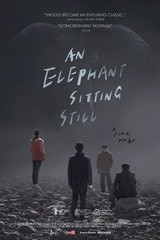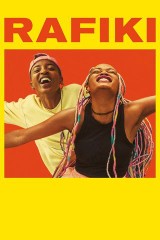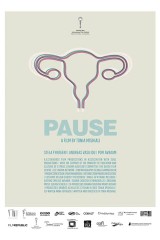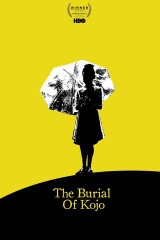
(Photo by Apparatur Film, Kino Lorber, GKIDS, Netflix, Array Releasing)
2019 has been an exciting year at the movies for fans of innovative, envelope-pushing filmmakers from across the globe, from Colombian indigenous crime saga Birds of Passage to Gaspar Noé’s dazzling dance-horror Climax to Carlos Reygadas’ existentialist marriage drama Our Time.
But you could be forgiven for not knowing that. With the saturation of the market – tons of movies are released each week in theaters and on VOD – and the public’s pervasive fear of subtitles, as well as the lack of access to art house and indie offers, these visions have a harder time breaking through today, even with the advent of streaming services. Without consistent championing from critics or costly marketing campaigns, which most small distributors can’t afford, scores of fantastic works go unnoticed soon after their one-week theatrical runs – often in just a handful of theaters in L.A. or New York.
To help you unearth these treasures, we’ve put together a list highlighting some of the most audacious features from around the world, selected from a long list of uncompromising releases that landed on American screens, big and small, this year so far. These 20 recommendations exemplify the refreshing, eye-opening, and empathy-inducing stories that can be discovered when we look beyond known faces and familiar storylines. These titles may not ring a bell right now, but if you see them, you won’t be able to stop thinking about them.
A purposefully graphic yet cerebral study on sexism and abuse, Swedish director Isabella Eklöf’s debut first shocked audiences at the Sundance Film Festival in 2018. Over a year later, a brave distributor put the controversial, sun-drenched story of Sascha (Victoria Carmen Sonne), a girl caught in the brutal underworld of organized crime, on American screens. Writing for
Variety, critic Guy Lodge said Eklöf’s first outing as a provocateur
“impresses with its clinical construction and still, penetrating gaze into male violence.” Eklöf fills the screen with explicit horrors committed against women, but uses their shock value to make a powerful statement rather than merely exploit it.
Awarded the Silver Bear for Best Actress at the Berlinale for star Ana Brun and chosen as Paraguay’s Oscar entry in the Best Foreign Language Film category, Marcelo Martinessi’s debut is the latest gem out of the South American country’s burgeoning film industry. It follows a middle-aged lesbian woman struggling to find her footing as her economic situation and longtime romantic relationship falter. “The movie shares a reserved quality with its central character. It is a quiet and observant film,”
wrote Monica Castillo in her review for Remezcla. “It is the absence of action and words that gives
The Heiresses so much power.”
Riding on a Cannes-winning, fiercely raw performance by its lead actor Félix Maritaud, French writer-director Camille Vidal-Naquet’s feature debut refrains from judging the male sex workers it follows, from explicit sexual encounters to precarious everyday circumstances, and even to some tender moments of affection.
Described by the L.A. Times’ Justin Chang as simultaneously “an intimate and unflinching portrait of a gay prostitute and some of the harsh realities of his line of work” and “the story of a man treating his job as a conduit for love,” the naturalistic drama offers a distinct perspective on this occupation. In
Savage/Wild, leaving this world is not the character’s ultimate goal.
The first Egyptian film ever to screen as part of Cannes’ main competition slate, this heartfelt road trip from director A.B. Shawky confronts the myths around leprosy and disability with genuinely triumphant characters who defy their circumstances. As a man leaving a leper colony to find his father alongside a young boy nicknamed “Obama,” Rady Gamal’s lead performance fills the screen with disarming charm. Reviewing for Variety, Jay Weissberg noted “the film’s visuals are always attractive without engaging in poverty porn,” and that even if “a firm sense of place” is always present, the auteur “maintains his focus on the characters themselves.”
Clocking in at nearly four hours, Hu Bo’s first and final masterpiece (the director tragically committed suicide soon after its completion) is a sobering and epic tale centered on multiple people in rural China facing existential crises. The characters range from a teenaged boy escaping retaliation from a local gang to an older man who refuses to be disposed of by his family. Deeply moved by Bo’s simultaneously disheartening and uplifting work,
The New York Times’ A.O. Scott referred to it as
“an act of solemn, disciplined and passionate protest.” Despite its runtime, critics say the late director’s fantastic handling of pace creates a fluid, unflinching, and enthralling experience.
Profoundly influenced by its director’s childhood memories, Dominga Sotomayor’s third feature takes place inside a Chilean commune in 1990, a seemingly idyllic setting reflective of the hope felt in a country in transition. The story follows precocious teen Sofía (trans actor Demian Hernandez) as she explores her sexuality and emerging adulthood. Calling it “more an atmospheric and sensorial experience than strictly a narrative one,”
The Hollywood Reporter’s Boyd van Hoeij summarized the film as a “lovingly textured addition to the coming-of-age genre.” With
Too Late to Die Young, Sotomayor became the first woman ever to win the directing award at the Locarno International Film Festival in its 71-year history.
Beloved by
Moonlight director
Barry Jenkins, this medium-length, stop-motion animated oddity revisits colonialism in Africa, especially Belgium-occupied Congo, with a sardonic tone. Visionary pair Emma De Swaef and Marc James Roels used felted wool to create the puppets that inhabit the five episodes that comprise
This Magnificent Cake!, imbuing their narratives with fascinating bizarreness as they show the atrocities of the past. Veteran animation historian Charles Solomon reviewed the film for
Los Angeles Times and characterized the 44-minute work as
“an intriguing, disturbing film, utterly unlike American studio animation.” Cannes, TIFF, and Telluride all hosted this peculiar achievement.
Caught between her desire to be a mother and her self-imposed duty to fight the nefarious corporations polluting Iceland, Halla (Halldora Geirharosdottir), the protagonist of Benedikt Erlingsson’s dryly humorous environmentalist dramedy, is a flesh-and-bone heroine. Galvanized by Geirharosdottir’s turn,
The Washington Post’s Ann Hornaday attributed the film’s success to the actress, who
“proves to be supremely at ease with both the physical demands of the film and its trickier internal journeys….” Using music performed by a band on screen instead of a traditional film score, Erlingsson adds magical realism to each sequence, making this Cannes-selected light thriller stand as a singular cinematic treat.
Revived and completed nearly three decades after it was originally shot by one of Chile’s most notable filmmakers, Raúl Ruiz, this fittingly episodic monument to melodrama is a collection of absurdist scenarios, eccentric individuals, and sharp insights disguised as gags. According to Film Comment’s Jonathan Romney,
“Ruiz wonderfully pastiches the stiffness, the talky longueurs, the abrupt discontinuity of the telenovela style,” which feels right at home when looking at the director’s oeuvre. Valeria Sarmiento, Ruiz’s spouse and artistic collaborator, took it upon herself to finally get this wandering soap opera to its final form; it premiered at the Locarno International Film Festival.
Tense and cathartic,
Pause announces the arrival of an unassumingly thunderous voice in international cinema: Cypriot first-time director Tonia Mishiali. Distressed by her body’s changes as she enters menopause, Elpida (Stella Fyrogeni) tries to keep her sanity despite her abusive husband’s attacks. “Mishiali shoots the film like a horror movie,”
Katie Walsh wrote in the L.A. Times, noting Fyrogeni’s “bravura performance of a woman at her wit’s end.” It’s only in her most intimate thoughts that Elpida finds her desired revenge, daring the audience to wonder if imagination could cross into reality, or if it already has.
Boasting delicately stunning work by lead actress Gabriela Cartol, this humanistic portrait of the Mexican working class by Lila Avilés – who previously worked mostly in theater and makes her feature debut here – looks into the life of Eve, a determined housekeeper in a lavish hotel. Taken by its unexpected storytelling prowess, Peter Bradshaw of
The Guardian deemed it
“an eerily atmospheric, poignant, disquieting movie about 21st-century luxury and the invisible servant class required to maintain it.” The assured direction, pristine cinematography, and naturalistic acting earned it the Best First Work Award from the Mexican Film Academy earlier this year. It is also one of the few films this year that has earned — and maintained — a Certified Fresh 100% on the Tomatometer.
Serving as director, cinematographer, and editor, Khalik Allah constructed a spellbinding meditation on the people and history of Jamaica that is structured to match a pregnancy’s trimesters – over its runtime, it becomes an ode to motherhood in all its pain and glory. In her review for RogerEbert.com,
critic Tomris Laffly hailed Black Mother as a “gloriously experimental” project that’s “embossed with lyricism, spirituality, culture and history.” Assembled from striking images and poignant voiceover, Allah’s distinct love letter to his mother’s homeland pushes the boundaries of documentary filmmaking with unabashed confidence
.
Distributed by Ava DuVernay’s company ARRAY, this extraordinary feature from Ghana by Samuel “Blitz” Bazawule (aka Blitz the Ambassador) navigates between reality and an otherworldly realm as it follows Esi (Cynthia Dankwa), a young girl mystified by her father’s vanishing after leaving their village for a job in the city. Highlighting the African fable’s technical accomplishments,
Kathleen Anaza from Shadow and Act was mesmerized by its “sonic achievement and innovative cinematography” and the “subtlety in Bazawule’s approach to Afrofuturism.” There’s no doubt that the culturally rich and spiritually charged imagery will take many new viewers’ breaths away.
Like this? Subscribe to our newsletter and get more features, news, and guides in your inbox every week.







